Jaeho Kim
TransPL: VQ-Code Transition Matrices for Pseudo-Labeling of Time Series Unsupervised Domain Adaptation
May 15, 2025



Abstract:Unsupervised domain adaptation (UDA) for time series data remains a critical challenge in deep learning, with traditional pseudo-labeling strategies failing to capture temporal patterns and channel-wise shifts between domains, producing sub-optimal pseudo-labels. As such, we introduce TransPL, a novel approach that addresses these limitations by modeling the joint distribution $P(\mathbf{X}, y)$ of the source domain through code transition matrices, where the codes are derived from vector quantization (VQ) of time series patches. Our method constructs class- and channel-wise code transition matrices from the source domain and employs Bayes' rule for target domain adaptation, generating pseudo-labels based on channel-wise weighted class-conditional likelihoods. TransPL offers three key advantages: explicit modeling of temporal transitions and channel-wise shifts between different domains, versatility towards different UDA scenarios (e.g., weakly-supervised UDA), and explainable pseudo-label generation. We validate TransPL's effectiveness through extensive analysis on four time series UDA benchmarks and confirm that it consistently outperforms state-of-the-art pseudo-labeling methods by a strong margin (6.1% accuracy improvement, 4.9% F1 improvement), while providing interpretable insights into the domain adaptation process through its learned code transition matrices.
Position: The AI Conference Peer Review Crisis Demands Author Feedback and Reviewer Rewards
May 08, 2025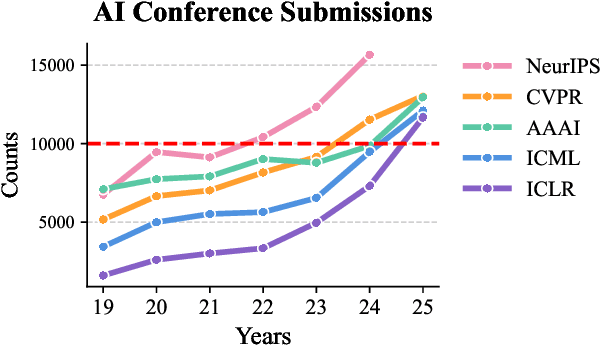
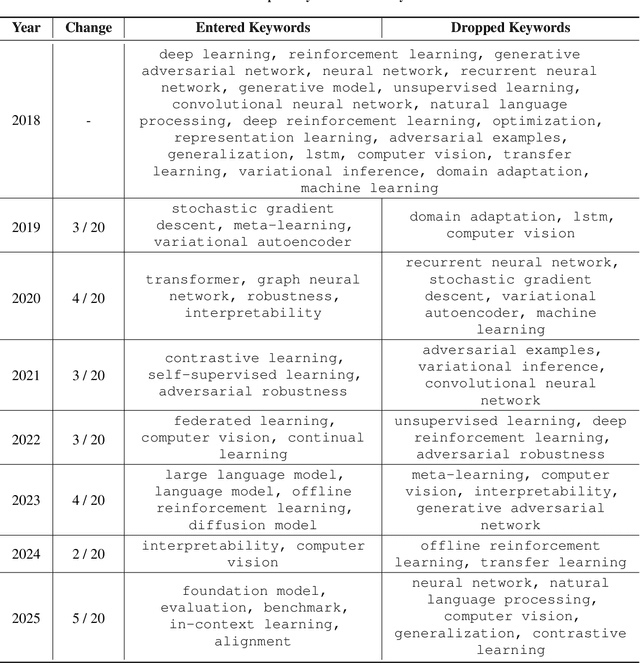
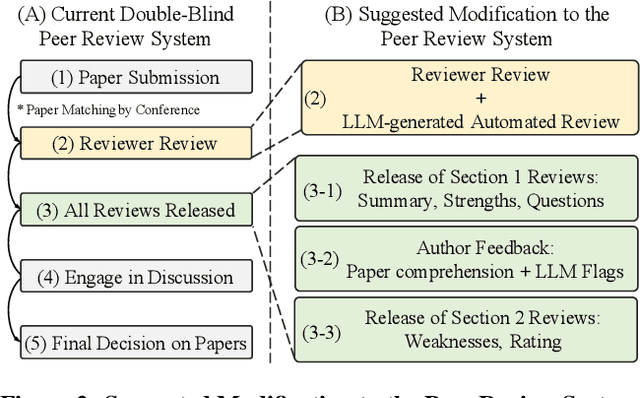
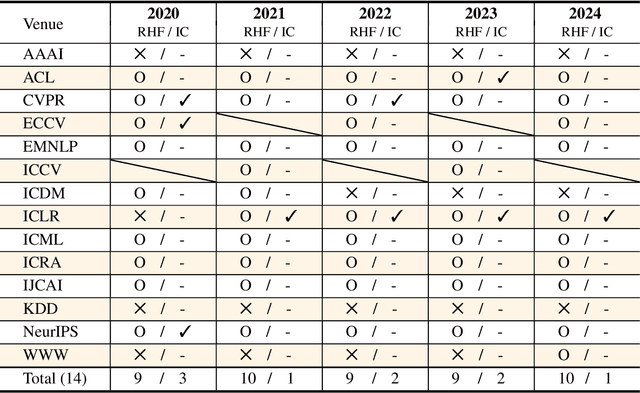
Abstract:The peer review process in major artificial intelligence (AI) conferences faces unprecedented challenges with the surge of paper submissions (exceeding 10,000 submissions per venue), accompanied by growing concerns over review quality and reviewer responsibility. This position paper argues for the need to transform the traditional one-way review system into a bi-directional feedback loop where authors evaluate review quality and reviewers earn formal accreditation, creating an accountability framework that promotes a sustainable, high-quality peer review system. The current review system can be viewed as an interaction between three parties: the authors, reviewers, and system (i.e., conference), where we posit that all three parties share responsibility for the current problems. However, issues with authors can only be addressed through policy enforcement and detection tools, and ethical concerns can only be corrected through self-reflection. As such, this paper focuses on reforming reviewer accountability with systematic rewards through two key mechanisms: (1) a two-stage bi-directional review system that allows authors to evaluate reviews while minimizing retaliatory behavior, (2)a systematic reviewer reward system that incentivizes quality reviewing. We ask for the community's strong interest in these problems and the reforms that are needed to enhance the peer review process.
CAFO: Feature-Centric Explanation on Time Series Classification
Jun 03, 2024
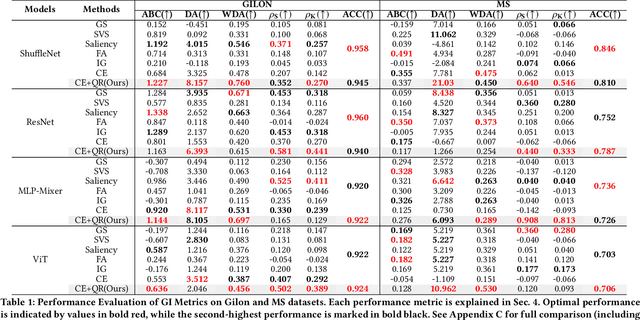

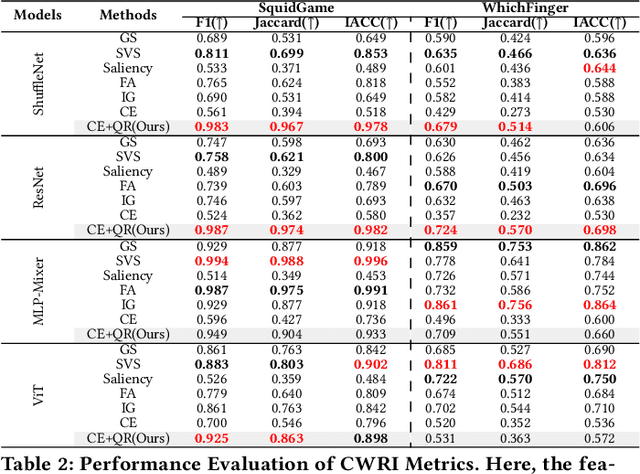
Abstract:In multivariate time series (MTS) classification, finding the important features (e.g., sensors) for model performance is crucial yet challenging due to the complex, high-dimensional nature of MTS data, intricate temporal dynamics, and the necessity for domain-specific interpretations. Current explanation methods for MTS mostly focus on time-centric explanations, apt for pinpointing important time periods but less effective in identifying key features. This limitation underscores the pressing need for a feature-centric approach, a vital yet often overlooked perspective that complements time-centric analysis. To bridge this gap, our study introduces a novel feature-centric explanation and evaluation framework for MTS, named CAFO (Channel Attention and Feature Orthgonalization). CAFO employs a convolution-based approach with channel attention mechanisms, incorporating a depth-wise separable channel attention module (DepCA) and a QR decomposition-based loss for promoting feature-wise orthogonality. We demonstrate that this orthogonalization enhances the separability of attention distributions, thereby refining and stabilizing the ranking of feature importance. This improvement in feature-wise ranking enhances our understanding of feature explainability in MTS. Furthermore, we develop metrics to evaluate global and class-specific feature importance. Our framework's efficacy is validated through extensive empirical analyses on two major public benchmarks and real-world datasets, both synthetic and self-collected, specifically designed to highlight class-wise discriminative features. The results confirm CAFO's robustness and informative capacity in assessing feature importance in MTS classification tasks. This study not only advances the understanding of feature-centric explanations in MTS but also sets a foundation for future explorations in feature-centric explanations.
 Add to Chrome
Add to Chrome Add to Firefox
Add to Firefox Add to Edge
Add to Edge